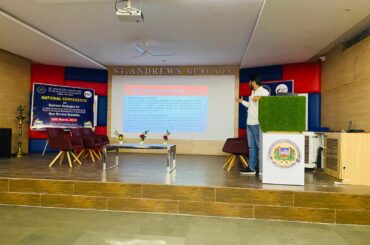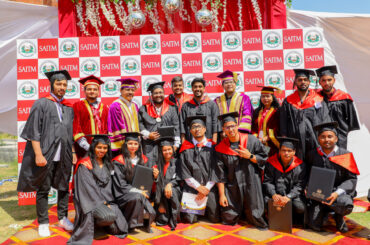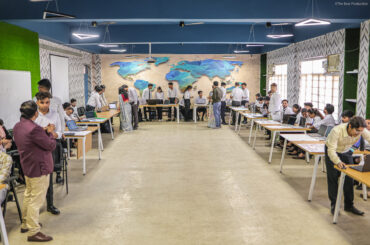Best Private BTech Colleges in India
Best Private BTech Colleges in India boast state-of-the-art infrastructure, experienced faculty, a variety of specializations, and strong placement records. These esteemed private engineering institutions are renowned for delivering top-notch B.Tech programs.
Many private engineering colleges in India provide an excellent platform for students to pursue their technical education and embark on successful careers in various fields of engineering.
Key Features of Top Private B.Tech Colleges in India
State-of-the-Art Infrastructure:
Modern laboratories, libraries, and classrooms equipped with the latest technology.
Well-maintained campuses with amenities such as sports facilities, hostels, and healthcare.
Experienced Faculty:
Professors and lecturers with extensive academic and industry experience.
Emphasis on research, innovation, and practical learning.
Diverse Specializations:
Offering specializations in emerging and traditional fields like Computer Science, Information Technology, Electronics, Mechanical Engineering, Civil Engineering, and Biotechnology.
Focus on interdisciplinary programs and industry-relevant courses.
Strong Industry Connections:
Collaboration with top companies for internships, projects, and placements.
Industry visits, guest lectures, and workshops to bridge the gap between academia and industry.
These colleges provide exposure to industrial technology through collaborations and industry visits.
Impressive Placement Records:
Dedicated placement cells that assist students in securing jobs with top-tier companies.
Regular recruitment drives and campus placements with competitive salary packages.
Innovative Teaching Methods:
Adoption of modern teaching methodologies including flipped classrooms, online resources, and interactive sessions.
Emphasis on practical and experiential learning through projects, internships, and industrial training.
Research and Development:
Encouragement of student participation in research projects and conferences.
Availability of funding and resources for innovative research initiatives.
Some of the most opted courses in India and St. Andrews college or different Engineering college or Management colleges are as follows:-
BTech Course Overview
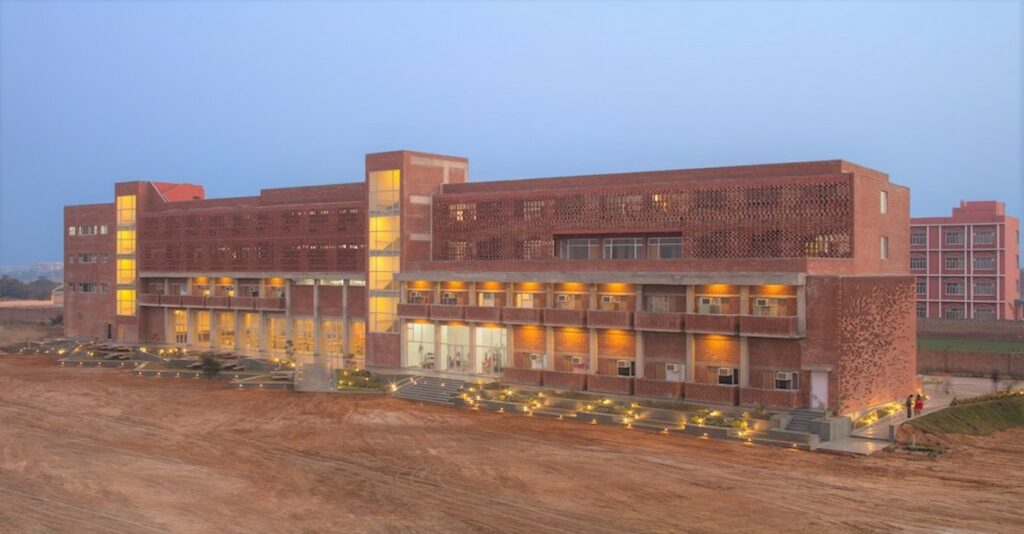
The Bachelor of Technology (B.Tech) is an undergraduate degree awarded after a four-year program in engineering and technology at the Best Private BTech Colleges in India. This course is structured to equip students with a comprehensive foundation in various engineering disciplines, practical skills, and hands-on experience.
Course Structure
Duration:
Typically, the B.Tech program spans over four years, divided into eight semesters.
Curriculum:
Core Subjects: Fundamental courses covering basic sciences and engineering principles.
Specialization Subjects: Advanced courses specific to the chosen branch of engineering.
Electives: Optional courses that allow students to explore other areas of interest.
Laboratories and Workshops: Practical sessions to enhance hands-on skills.
Projects and Internships: Opportunities for real-world experience and application of knowledge.
Common Specializations
Computer Science and Engineering (CSE):
Focuses on computer systems, programming, algorithms, and software development.
Information Technology (IT):
Emphasizes information systems, database management, and network security.
Electronics and Communication Engineering (ECE):
Covers electronic devices, circuits, communication systems, and signal processing.
Mechanical Engineering (ME):
Deals with the design, analysis, and manufacturing of mechanical systems.
Civil Engineering (CE):
Involves the planning, design, and construction of infrastructure projects like buildings, roads, and bridges.
Electrical Engineering (EE):
Focuses on electrical systems, power generation, and distribution.
Biotechnology (BT):
Combines biological sciences with engineering principles to develop technologies and products.
Artificial Intelligence and Machine Learning (AI & ML):
Concentrates on developing intelligent systems and algorithms that can learn and adapt.
Key Features
Theoretical Knowledge:
Strong emphasis on fundamental engineering principles and theories.
Practical Skills:
Hands-on training through labs, workshops, and internships to develop practical skills.
Project Work:
Capstone projects in the final year to demonstrate proficiency and innovative thinking.
Industrial Exposure:
Opportunities for internships and industrial visits to gain real-world experience.
Research Opportunities:
Encouragement to participate in research projects, publish papers, and attend conferences.
Career Prospects
Job Opportunities:
Graduates can pursue careers in various industries such as IT, manufacturing, construction, telecommunications, and more.
Roles include software developer, systems engineer, design engineer, project manager, and research analyst.
Higher Education:
Options for further studies include M.Tech (Master of Technology), MBA (Master of Business Administration), and Ph.D. programs.
Entrepreneurship:
Support for startups and innovation through incubation centers and entrepreneurial programs.
Key Features of Private Engineering Colleges
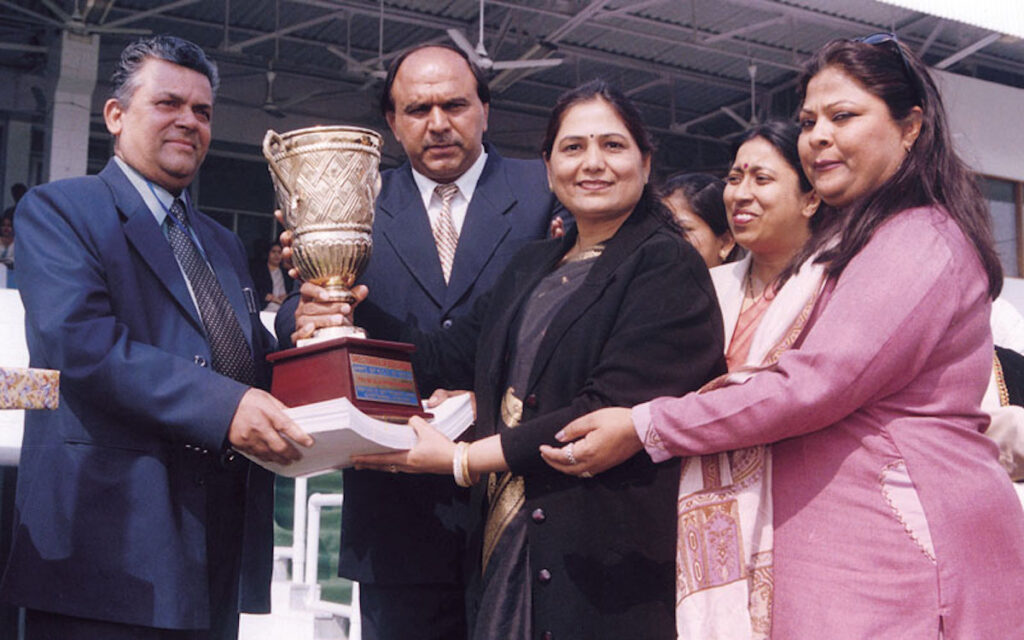
The Best Private BTech Colleges in India have built a reputation for delivering high-quality education and promoting innovation in the engineering field.
Here are the key features that distinguish these institutions:
State-of-the-Art Infrastructure
Modern Facilities: Equipped with advanced laboratories, libraries, and smart classrooms.
Campus Amenities: Includes hostels, sports facilities, healthcare, and recreational areas.
Experienced Faculty
Qualified Professors: Faculty members with extensive academic credentials and industry experience.
Research Focused: Encouragement of faculty and student participation in research and publications.
Diverse Specializations
Wide Range of Programs: Offering specializations in fields such as Computer Science, IT, Electronics, Mechanical, Civil, Biotechnology, and more.
Emerging Technologies: Programs in AI, Machine Learning, Data Science, Cybersecurity, etc.
Strong Industry Connections
Corporate Partnerships: Collaboration with leading companies for internships, projects, and job placements.
Industry Exposure: Regular industrial visits for understanding industrial technology, guest lectures by industry experts, and workshops.
Impressive Placement Records
Placement Cells: Dedicated departments that assist students in securing employment.
Recruitment Drives: Frequent campus placement events attracting top companies with lucrative job offers.
Innovative Teaching Methods
Modern Pedagogy: Use of flipped classrooms, e-learning platforms, and interactive teaching techniques.
Hands-on Learning: Emphasis on practical experience through labs, projects, and internships.
Research and Development
Research Facilities: Access to advanced research labs and funding opportunities.
Student Projects: Encouragement for students to engage in innovative projects and participate in conferences and competitions.
Comprehensive Support Services
Academic Support: Tutoring, mentoring, and counseling services.
Extracurricular Activities: Various clubs, societies, and events to foster all-round development.
Global Exposure
International Collaborations: Partnerships with foreign universities for exchange programs and joint research.
Global Competitions: Participation in international competitions and conferences.
Entrepreneurial Environment
Incubation Centers: Support for startups and entrepreneurial ventures.
Networking Opportunities: Access to networks of successful alumni and industry leaders.
Factors to Consider While Choosing a Private Engineering College

Selecting the right private engineering college is a crucial decision that can significantly impact your academic and professional future.
Here are key factors to consider:
Accreditation and Affiliation
Recognition: Ensure the college is accredited by recognized bodies such as the All India Council for Technical Education (AICTE) and affiliated with a reputable university.
Quality Assurance: Accreditation ensures that the institution meets certain educational standards.
Course Offerings and Specializations
Program Availability: Check if the college offers the B.Tech specializations you are interested in.
Curriculum: Review the curriculum to ensure it is up-to-date and industry-relevant.
Faculty
Qualifications: Look for well-qualified and experienced faculty members.
Research and Industry Experience: Faculty involved in research and with industry experience can provide valuable insights and guidance.
Infrastructure and Facilities
Laboratories and Equipment: State-of-the-art labs and equipment for practical learning.
Campus Facilities: Adequate facilities like libraries, sports complexes, hostels, and healthcare services.
Placement Record
Placement Cell: A dedicated placement cell that assists students in securing internships and jobs.
Past Placements: Check the college’s placement statistics, including the companies that visit and the average salary packages offered.
Industry Connections
Collaborations: Partnerships with leading companies for internships, projects, and placements.
Industry Exposure: Opportunities for industrial visits, guest lectures, and workshops.
Research Opportunities
Research Facilities: Availability of research centers and funding for student projects.
Publications and Conferences: Opportunities to publish research papers and attend conferences.
Campus Life and Extracurricular Activities
Student Organizations: Presence of clubs and societies for various interests.
Events and Competitions: Participation in technical fests, cultural events, and sports.
Location
Proximity: Consider the college’s location concerning your home and its connectivity.
Industrial Hubs: Colleges near industrial hubs may offer better internship and job opportunities.
Cost and Financial Aid
Tuition Fees: Compare the fee structure with other colleges.
Scholarships: Availability of scholarships, grants, and financial aid options.
Alumni Network
Successful Alumni: Strong alumni network indicating successful graduates.
Networking Opportunities: Access to a network of professionals for mentorship and career guidance.
Student Support Services
Counseling: Academic and career counseling services.
Mentorship Programs: Mentorship from faculty and senior students.
Top Private Engineering Colleges in India

India hosts several prestigious private engineering institutions known for their academic excellence, state-of-the-art infrastructure, and impressive placement records.
Here is a list of some of the top private engineering colleges in India:
Birla Institute of Technology and Science (BITS), Pilani:
Location: Pilani, Rajasthan
Highlights: Known for its rigorous academic programs, cutting-edge research, and strong industry connections. BITS Pilani offers flexible academic structures and a highly competitive environment.
St. Andrews Institute of Technology and Management (SAITM)
Location: Gurgaon, Haryana
Highlights: Offers a wide range of engineering disciplines with a focus on providing practical and industry-relevant education. Known for its modern infrastructure, dedicated faculty, and strong placement support.
Vellore Institute of Technology (VIT)
Location: Vellore, Tamil Nadu
Highlights: Renowned for its excellent infrastructure, diverse course offerings, and robust placement records. VIT conducts its own entrance exam, VITEEE, for admissions.
Thapar Institute of Engineering and Technology:
Location: Patiala, Punjab
Highlights: Offers a variety of undergraduate and postgraduate programs with strong emphasis on research and innovation. Known for its collaborations with international universities and strong alumni network.
PSG College of Technology
Location: Coimbatore, Tamil Nadu
Highlights: Known for its high academic standards, excellent faculty, and strong industry ties. PSG College has a legacy of producing successful engineers and entrepreneurs.
SASTRA (Shanmugha Arts, Science, Technology and Research Academy)
Location: Thanjavur, Tamil Nadu
Highlights: Offers a blend of traditional and modern engineering education with strong research orientation. Known for its academic rigor and innovative teaching methodologies.
RV College of Engineering
Location: Bangalore, Karnataka
Highlights: One of the oldest self-financing engineering colleges in India, known for its high academic standards, excellent faculty, and strong industry connections.
State-wise Private Engineering Colleges
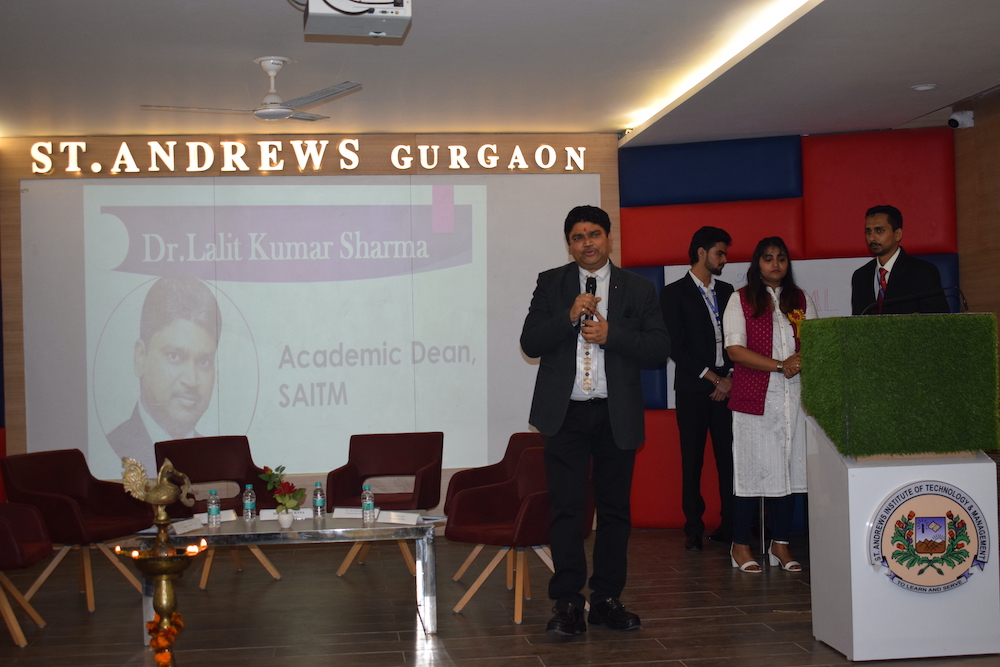
Here’s a list of top private engineering colleges in India, categorized state-wise:
New Delhi
Indraprastha Institute of Information Technology (IIIT) Delhi
- Location: Okhla Industrial Estate, New Delhi
- Highlights: Known for its strong emphasis on research and innovation, IIIT Delhi offers cutting-edge programs in Information Technology and allied disciplines.
Maharaja Agrasen Institute of Technology (MAIT)
- Location: Rohini, New Delhi
- Highlights: Affiliated with Guru Gobind Singh Indraprastha University, MAIT is known for its excellent academic environment, experienced faculty, and strong placement records.
Haryana
St. Andrews Institute of Technology and Management (SAITM), Gurgaon
- Location: Gurgaon
- Highlights: Practical knowledge focus, good industry exposure, active placement cell.
Rajasthan
Birla Institute of Technology and Science (BITS), Pilani;
- Location: Pilani
- Highlights: High academic standards, innovative pedagogy, strong research emphasis.
LNM Institute of Information Technology (LNMIIT), Jaipur
- Location: Jaipur
- Highlights: Known for IT and computer science programs, strong industry collaborations.
Tamil Nadu
Vellore Institute of Technology (VIT), Vellore
- Location: Vellore
- Highlights: Excellent infrastructure, diverse programs, high placement rates.
SASTRA Deemed University, Thanjavur
- Location: Thanjavur
- Highlights: Emphasis on research, strong industry links, practical training focus.
Karnataka
PES University, Bangalore
- Location: Bangalore
- Highlights: Strong placement records, focus on innovation and entrepreneurship.
RV College of Engineering (RVCE), Bangalore
- Location: Bangalore
- Highlights: Reputed faculty, high placement rates, strong alumni network.
Uttar Pradesh
Jaypee Institute of Information Technology, Noida
- Location: Noida
- Highlights: Known for IT and computer science, excellent faculty, strong placement support.
BTech Courses Offered by Private Engineering Colleges
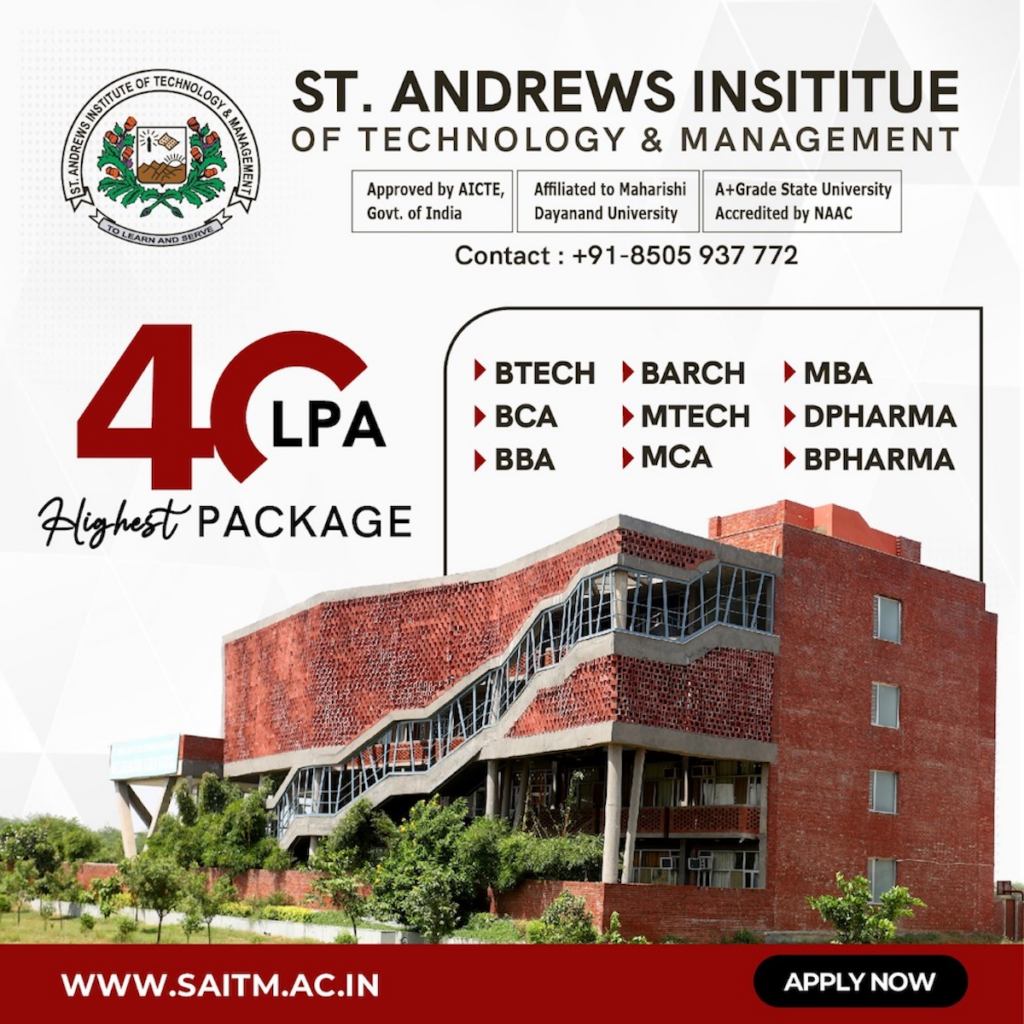
Private engineering colleges in India offer a wide range of B.Tech (Bachelor of Technology) programs, catering to various interests and industry needs.
Here is a list of common and popular B.Tech courses typically offered by these institutions:
Computer Science Engineering (CSE)
Focuses on programming, software development, algorithms, data structures, and computer systems.
Specializations may include Artificial Intelligence, Machine Learning, Data Science, and Cybersecurity.
Information Technology (IT)
Emphasizes information systems, database management, network security, and web technologies.
Specializations may include Cloud Computing, Big Data, and Software Engineering.
Electronics and Communication Engineering (ECE)
Covers electronic devices, circuits, communication systems, signal processing, and embedded systems.
Specializations may include VLSI Design, Communication Networks, and RF Engineering.
Mechanical Engineering (ME)
Involves the design, analysis, manufacturing, and maintenance of mechanical systems.
Specializations may include Thermal Engineering, Robotics, and Automotive Engineering.
Civil Engineering (CE)
Focuses on the design, construction, and maintenance of infrastructure projects like buildings, roads, and bridges.
Specializations may include Structural Engineering, Environmental Engineering, and Geotechnical Engineering.
Electronics Engineering (EE)
Deals with electrical systems, power generation, transmission, and distribution.
Specializations may include Power Systems, Electrical Machines, and Control Systems.
Biotechnology (BT)
Combines biological sciences with engineering principles to develop technologies and products.
Specializations may include Genetic Engineering, Bioinformatics, and Industrial Biotechnology.
Chemical Engineering (ChemE)
Focuses on chemical processes, reactions, and the design of chemical plants.
Specializations may include Process Engineering, Biochemical Engineering, and Environmental Engineering.
Aerospace Engineering
Aerospace engineering involves the design and development of aircraft and spacecraft.
Specializations may include Aerodynamics, Propulsion, and Space Systems.
Automobile Engineering
Focuses on the design, development, and manufacturing of vehicles.
Specializations may include Automotive Electronics, Vehicle Dynamics, and Powertrain Systems.
Structural Engineering
A specialization within Civil Engineering focusing on the design and analysis of structures such as buildings and bridges.
Environmental Engineering
Addresses issues related to pollution control, waste management, and sustainable development.
Specializations may include Water Resources Engineering, Air Quality Management, and Environmental Impact Assessment.
Data Science and Engineering
Focuses on the collection, analysis, and interpretation of large data sets.
Specializations may include Big Data Analytics, Machine Learning, and Predictive Analytics.
Artificial Intelligence and Machine Learning (AI & ML)
Specializes in the development of intelligent systems and algorithms that can learn and adapt.
Robotics Engineering
Involves the design and development of robots and automated systems.
Specializations may include Industrial Robotics, Autonomous Systems, and Human-Robot Interaction.
Fee Structure of Leading Private Engineering Colleges in India
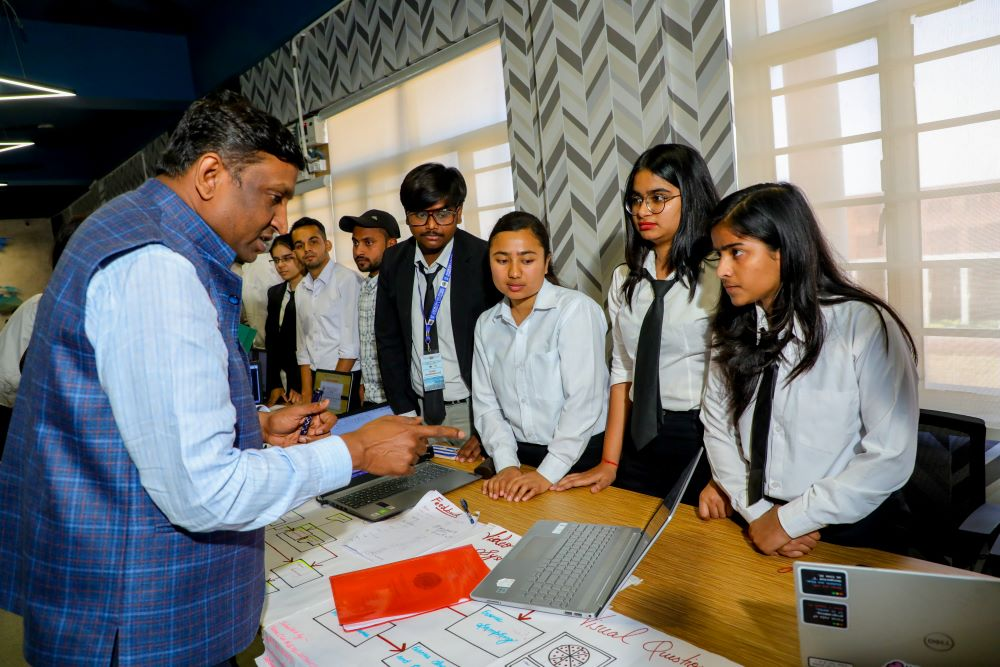
The fee structure at the Best Private BTech Colleges in India varies based on the institution’s reputation, location, and course specialization. Here is a general overview of the fees for some leading private engineering colleges.
Birla Institute of Technology and Science (BITS), Pilani
Annual Fees: ₹4,00,000 – ₹4,50,000
Additional Costs: Hostel fees, mess charges, and other incidental expenses.
St. Andrews Institute of Technology and Management (SAITM):
Annual Fees: ₹98,500/-
Additional Costs: Hostel fees, mess charges, and other incidental expenses.
Vellore Institute of Technology (VIT):
Annual Fees: ₹2,00,000 – ₹2,50,000
Additional Costs: Hostel fees, mess charges, and other incidental expenses.
Thapar Institute of Engineering and Technology
Annual Fees: ₹1,50,000 – ₹2,00,000
Additional Costs: Hostel fees, mess charges, and other incidental expenses.
PSG College of Technology:
Annual Fees: ₹1,50,000 – ₹2,00,000
Additional Costs: Hostel fees, mess charges, and other incidental expenses.
SASTRA (Shanmugha Arts, Science, Technology & Research Academy)
Annual Fees: ₹1,50,000 – ₹2,00,000
Additional Costs: Hostel fees, mess charges, and other incidental expenses.
RV College of Engineering:
Annual Fees: ₹1,50,000 – ₹2,00,000
Additional Costs: Hostel fees, mess charges, and other incidental expenses.
Eligibility Criteria for BTech Admissions

Eligibility criteria for admissions at the Best Private BTech Colleges in India typically include educational qualifications, entrance exam scores, and other specific requirements.
Educational Qualifications
10+2 Education: Candidates must have completed their higher secondary education (10+2) or an equivalent from a recognized board.
Core Subjects: Candidates should have studied Physics, Chemistry, and Mathematics (PCM) as core subjects in their 10+2 curriculum. For certain specializations, other subjects like Biology might also be accepted.
Minimum Marks
General Category: Most private engineering colleges require candidates to have obtained a minimum aggregate score of 50% to 60% in the 10+2 examination.
Reserved Categories: There may be relaxation in the minimum marks for candidates belonging to reserved categories (e.g., SC/ST/OBC) as per government norms.
Entrance Exams
National/State-Level Exams: Many private engineering colleges accept scores from national or state-level engineering entrance exams such as:
JEE Main (Joint Entrance Examination Main)
JEE Advanced (for IITs)
State-specific exams (e.g., MHT CET for Maharashtra, KCET for Karnataka)
Institution-Specific Exams: Some of private college conduct their own entrance exams:
VITEEE (VIT Engineering Entrance Examination)
BITSAT (BITS Admission Test)
Age Limit
Candidates generally need to be within a certain age limit, often up to 25 years as of the year of admission. Age limits may vary by institution and may be relaxed for reserved categories.
Other Requirements
Nationality: Candidates should be Indian nationals or meet the nationality requirements set by the institution. Some colleges may also admit foreign students.
Medical Fitness: Some institutions may require candidates to provide a medical fitness certificate to confirm their ability to undertake the engineering program.
Application Process
Application Form: Candidates need to fill out and submit an application form, which can be done online or offline as per the institution’s procedure.
Documents Required: Commonly required documents include:
Mark sheets of 10th and 12th grades
Entrance exam scorecard
Photographs
Identity proof
Counseling and Interviews
Counseling: Based on entrance exam scores and academic performance, candidates may need to attend counseling sessions where they can select their specialization and college.
Interviews: Some institutions may conduct interviews or group discussions as part of their admission process.
Entrance Exams Accepted by Best Private Engineering Colleges
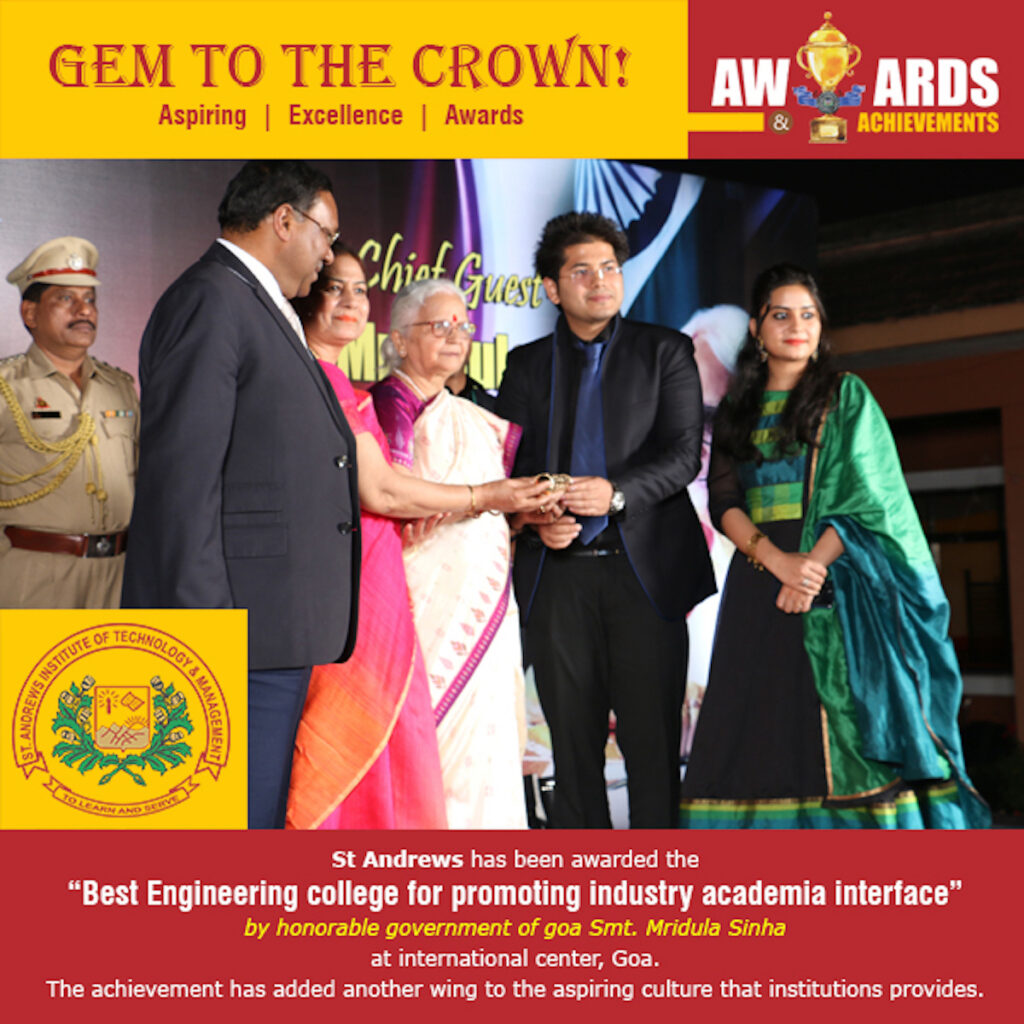
The Best Private BTech Colleges in India typically accept a range of entrance exams for admission into their B.Tech programs, including national, state-level, and institution-specific tests.
Here’s a comprehensive list of entrance exams typically accepted by private engineering colleges in India:
National-Level Entrance Exams
These exams are recognized by many private engineering colleges across the country:
JEE Main (Joint Entrance Examination Main)
Conducted by: National Testing Agency (NTA)
Purpose: Admission to various private and government engineering colleges including NITs, IIITs, and some deemed-to-be universities.
JEE Advanced
Conducted by: One of the IITs (Indian Institutes of Technology)
Purpose: Admission to IITs. Some private engineering colleges also consider JEE Advanced scores.
State-Level Entrance Exams
Many private engineering colleges accept state-level entrance exams:
MHT CET (Maharashtra Common Entrance Test)
Conducted by: Directorate of Technical Education, Maharashtra
Purpose: Admission to engineering colleges in Maharashtra.
KCET (Karnataka Common Entrance Test)
Conducted by: Karnataka Examinations Authority (KEA)
Purpose: Admission to engineering colleges in Karnataka.
AP EAMCET (Andhra Pradesh Engineering, Agriculture, and Medical Common Entrance Test)
Conducted by: Jawaharlal Nehru Technological University, Kakinada
Purpose: Admission to engineering colleges in Andhra Pradesh.
TS EAMCET (Telangana State Engineering, Agriculture and Medical Common Entrance Test)
Conducted by: Jawaharlal Nehru Technological University, Hyderabad
Purpose: Admission to engineering colleges in Telangana.
WBJEE (West Bengal Joint Entrance Examination)
Conducted by: West Bengal Joint Entrance Examinations Board
Purpose: Admission to engineering colleges in West Bengal.
Institution-Specific Entrance Exams
Many private engineering colleges conduct their own entrance exams:
VITEEE (VIT Engineering Entrance Examination)
Conducted by: VIT University
Purpose: Admission to VIT University campuses in Vellore, Chennai, and Bhopal.
BITSAT (BITS Admission Test)
Conducted by: BITS Pilani
Purpose: Admission to BITS Pilani campuses including Pilani, Goa, and Hyderabad.
Other Notable Entrance Exams
Some other exams accepted by private engineering colleges:
JEST (Joint Entrance Screening Test)
Conducted by: Various institutions for research and PhD programs in engineering and science.
KLEU AIET (KLE University All India Entrance Test)
Conducted by: KLE University
Purpose: Admission to KLE Technological University.
Top Companies Recruiting from Best Private Engineering Colleges in India

Here’s a list of some top companies that frequently recruit graduates from best private engineering colleges in India:
IT and Software Companies
Tata Consultancy Services (TCS)
Infosys
Wipro
HCL Technologies
Cognizant Technology Solutions
Tech Mahindra
Accenture
Technology and Electronics Companies
Intel Corporation
Samsung Electronics
Sony India
IBM India
Telecommunications Companies
Bharti Airtel
Reliance Jio
Vodafone Idea
Automobile Companies
Tata Motors
Mahindra & Mahindra
Maruti Suzuki
Hyundai Motor India
Financial and Consulting Firms
Deloitte
KPMG
PricewaterhouseCoopers (PwC)
Ernst & Young (EY)
FMCG and Consumer Goods Companies
Hindustan Unilever Limited (HUL)
Procter & Gamble (P&G)
Nestlé India
Pharmaceutical and Healthcare Companies
Cipla
Dr. Reddy’s Laboratories
Sun Pharmaceutical Industries
Engineering and Manufacturing Companies
Larsen & Toubro (L&T)
Siemens India
General Electric (GE)
Average Salary Packages Expected After BTech
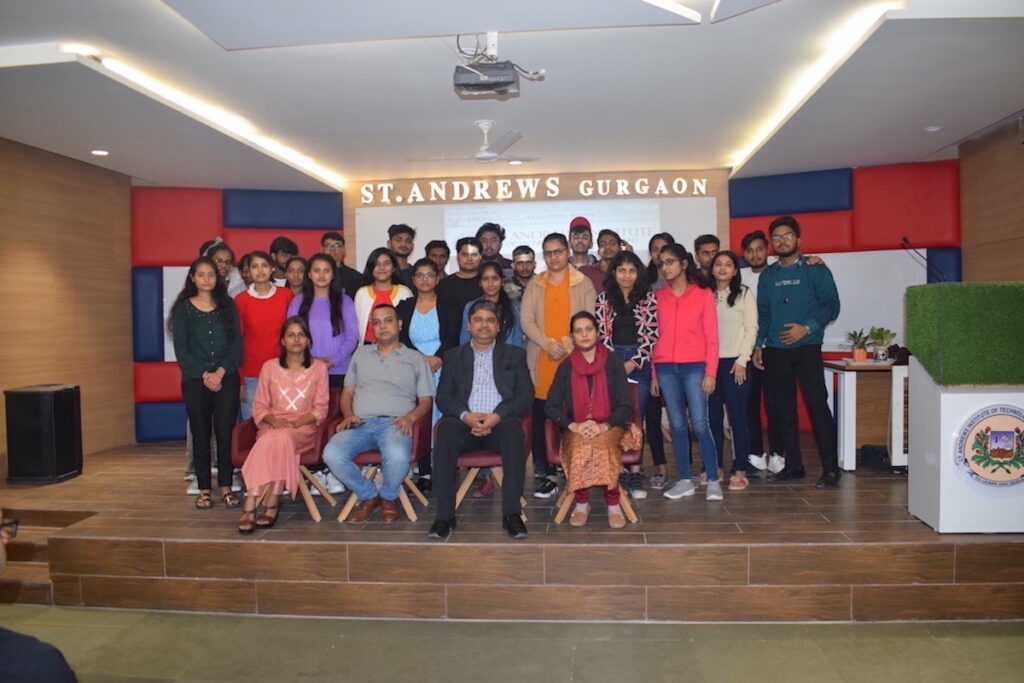
The average salary packages for private engineering courses graduates in India can vary significantly based on factors such as the engineering specialization, the reputation of the institution, the location of the job, and the company.
Here’s a general overview of salary expectations for B.Tech graduates across different levels and specializations:
Entry-Level Salaries
- Average Salary: ₹3,00,000 to ₹5,00,000 per annum
- Details: Entry-level positions typically include roles such as software engineers, system engineers, and junior engineers. The salary can vary depending on the industry and company.
Mid-Level Salaries
- Average Salary: ₹6,00,000 to ₹10,00,000 per annum
- Details: Mid-level positions usually involve roles with more responsibilities, such as project leads, senior engineers, and technical managers. Experience and performance play a significant role in salary increments.
Senior-Level Salaries
- Average Salary: ₹12,00,000 to ₹20,00,000 per annum
- Details: Senior-level positions include roles like engineering managers, senior technical consultants, and project managers. These roles require extensive experience and often come with leadership responsibilities.
Specialized Roles
Software Engineering:
- Entry-Level: ₹3,50,000 to ₹6,00,000
- Mid-Level: ₹7,00,000 to ₹12,00,000
- Senior-Level: ₹15,00,000 to ₹25,00,000
Data Science and Machine Learning:
- Entry-Level: ₹5,00,000 to ₹8,00,000
- Mid-Level: ₹10,00,000 to ₹15,00,000
- Senior-Level: ₹20,00,000 to ₹30,00,000
Cybersecurity:
- Entry-Level: ₹4,00,000 to ₹7,00,000
- Mid-Level: ₹8,00,000 to ₹12,00,000
- Senior-Level: ₹15,00,000 to ₹25,00,000
Mechanical Engineering:
- Entry-Level: ₹3,50,000 to ₹6,00,000
- Mid-Level: ₹7,00,000 to ₹10,00,000
- Senior-Level: ₹12,00,000 to ₹18,00,000
High Salary Packages
- Top Private Colleges: Graduates from prestigious private engineering institutions like BITS Pilani, VIT, and SRM often receive higher salary packages.
- International Placements: Graduates securing positions in multinational companies or international locations may receive significantly higher compensation, ranging from ₹20,00,000 to ₹40,00,000 or more.
FAQs
What is the admission process for top private engineering colleges in India?
Admission to the Best Private BTech Colleges in India typically requires clearing entrance exams such as JEE Main, BITSAT, and VITEEE. Universities like Amity also conduct their own exams, followed by counseling and interviews. Additionally, some colleges administer proprietary entrance tests.
Are there scholarships available in top private engineering colleges in India?
Yes, private engineering college offers merit-based, need-based, or sports scholarships. Specific details can be found on the college’s official website.
What is the typical fee structure for top private engineering colleges in India?
Fees vary widely but can range from ₹1.5 lakh to ₹5 lakh per annum, depending on the institution and specialization.
How are the placements in top private engineering colleges in India?
Placement records vary by institution but many private colleges have strong industry connections, resulting in good placement opportunities and packages.
Do top private engineering colleges in India offer hostel facilities?
Top private engineering colleges provide hostel accommodation with varying facilities. Details are usually available on the college’s official website.
What specializations are commonly available in top private engineering colleges in India?
At the Best Private BTech Colleges in India, common specializations include Computer Science, Electronics and Communication, Mechanical Engineering, Civil Engineering, Electrical Engineering, and Biotechnology.
What is the typical duration of a B.Tech course in private colleges?
The duration is typically 4 years, divided into 8 semesters.
Do top private engineering colleges in India offer internship opportunities?
Yes, most private colleges have tie-ups with industries for internships, which are often integrated into the curriculum.
What is the difference between government and private engineering colleges in India?
Best Private BTech Colleges in India typically charge higher fees, offering modern infrastructure and strong industry connections. Conversely, government engineering colleges often have lower fees and may boast longer-standing reputations for academic excellence.


